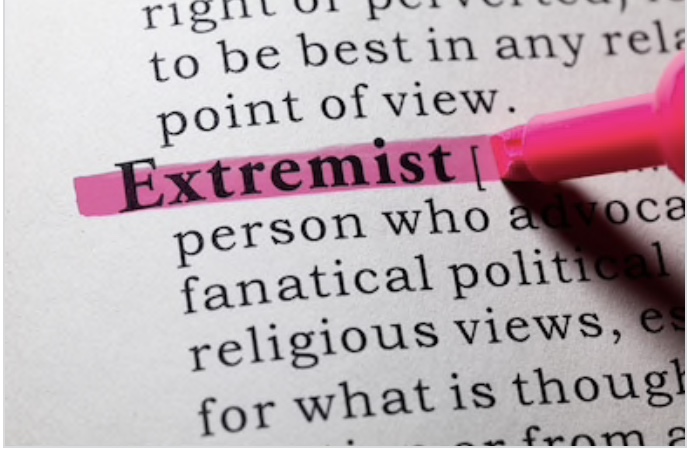
"Feelings of threats coming from immigration do not systematically increase political extremism and discrimination"
Author: Prof. Constantina Badea, Social Psychology, Université Paris Nanterre
Immigrants are perceived as a “threat” to national identity in many European countries. This threat may be "symbolic", referring to the perception of significant differences between the values, norms, beliefs and attitudes of the majority group and those of minorities with an immigrant background, or "realistic", affecting the economic and political power of the national group. Members of the host society may imagine that their national identity will be affected because of significant cultural differences between immigrants and the majority group. They may consider that the national economic level will fall and unemployment will increase because of the immigrants and the social benefits mobilized for this population. Surveys collected in the United Kingdom after the Brexit referendum suggest that there is a direct association between feelings of threat coming from immigration and negative views towards the European Union.
A new form of threat has grown in the last decade among members of the majority groups in European countries: the threat to physical security emerged from terrorism. Recent research in social psychology investigated whether the perceived threat of terrorism explained the support for right-wing Eurosceptic parties in relation to other relevant factors, including perceived economic and symbolic threats coming from immigration. Results showed that symbolic threat was the most important predictor of support for Eurosceptic parties, while economic threat was not significantly associated with such political extremism. The perceived threat of terrorism was positively correlated with negative attitudes against Europe in many countries, including the United Kingdom, but this link was not observed systematically in all national contexts.
The terrorism threat does not exclusively trigger support for extremely right-wing political parties but also prejudice and discrimination against minorities with an immigrant background and especially those practicing the Muslim religion. Several studies have examined the attitudes of members of the majority groups and their behavior towards Muslim immigrants in the aftermath of terrorist attacks. In France, for example, research has shown that members of the host society can support anti-terrorist measures that discriminate against Muslims (e.g., surveillance, prohibition of entry into the national territory). However, these negative attitudes are far from being widespread among the French population.
Sometimes, a terrorist attack happens in “the middle” of an experimental study which examines discrimination against Muslim, providing a singular possibility to compare individuals’ behavior towards this population, before and after the dramatical event. This research published recently, included other factors of Muslims’ discrimination as perception of social norms concerning practices of religion in public space. Just after the terrorist attacks in France, many media and public figures have emphasized the importance of differentiating Islam and Jihad and of fully recognizing people with Arab-Muslim origins as French citizens. The terrorist attacks were followed by a huge civic manifestation in all major cities in France reaffirming equalitarian values. This public mobilization made possible a change in the perception of normative context concerning the practice of religions towards a greater individual freedom. Paradoxically, after the attacks, the normative context was more favorable and discrimination against Muslim was even lower than before the attacks.
Prejudice, discrimination and political extremism are related factors, and they may be increased by feelings of threat coming from immigration. However, not all forms of threat have the same impact: the cultural threat seems to be a more constant predictor of negative attitudes and behaviors than economic threat. The effect of terrorist threat may depend on the normative context, on the way policymakers depict immigrants and immigration in general. Political extremism and all connected negative attitudes seem to be a question of cultural identity, of how we define “who we are” and “what we value” in our society, above and beyond a question of economic threat.
Recommended readings:
Anier, N., Roebroeck, E., Kleinlogel, E. P., Badea, C., Nugier, A., Berthon, M., & Guimond, S. (2019). The effect of the normative context on intergroup discrimination: Implications for the scientific value of exact and conceptual replications. International Journal of Intercultural Relations, 73, 43-58. https://doi.org/10.1016/j.ijintrel.2019.07.006
Badea, C., Binning, K., Sherman, D., & Verlhiac, JF. (2018). In the Aftermath of Terrorism: Effects of Self- versus Group-Affirmation on Support for Discriminatory Policies. Journal of Experimental Social Psychology, 76, 421-428. https://doi.org/10.1016/j.jesp.2017.11.004
Vergani, M., Bliuc, A. M., Stuart, A., Badea, C., Muntele, D., & McGarty, C. (2019). United in diversity, divided in adversity? Support for right-wing Eurosceptic parties in the face of threat differs across nations. Frontiers in psychology, 10, 1880. https://doi.org/10.3389/fpsyg.2019.01880


